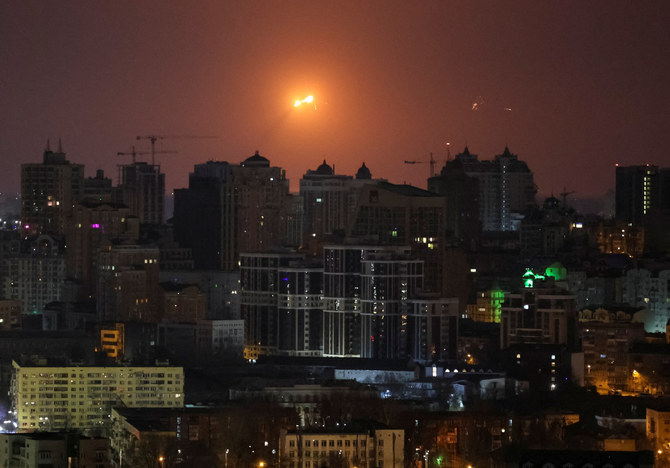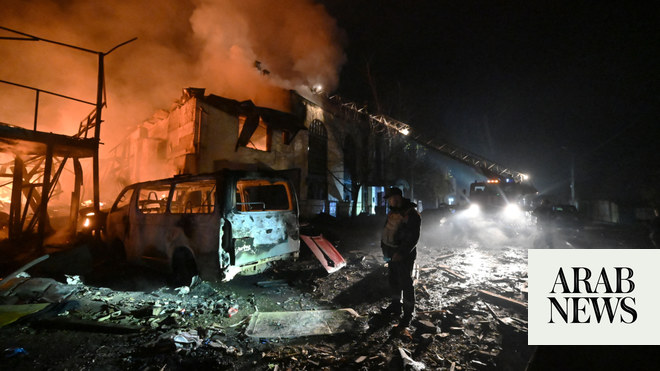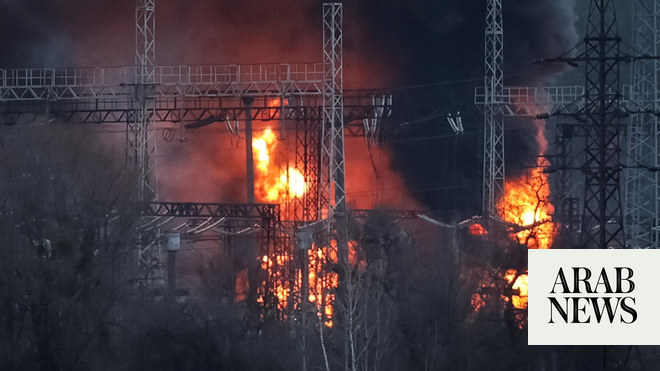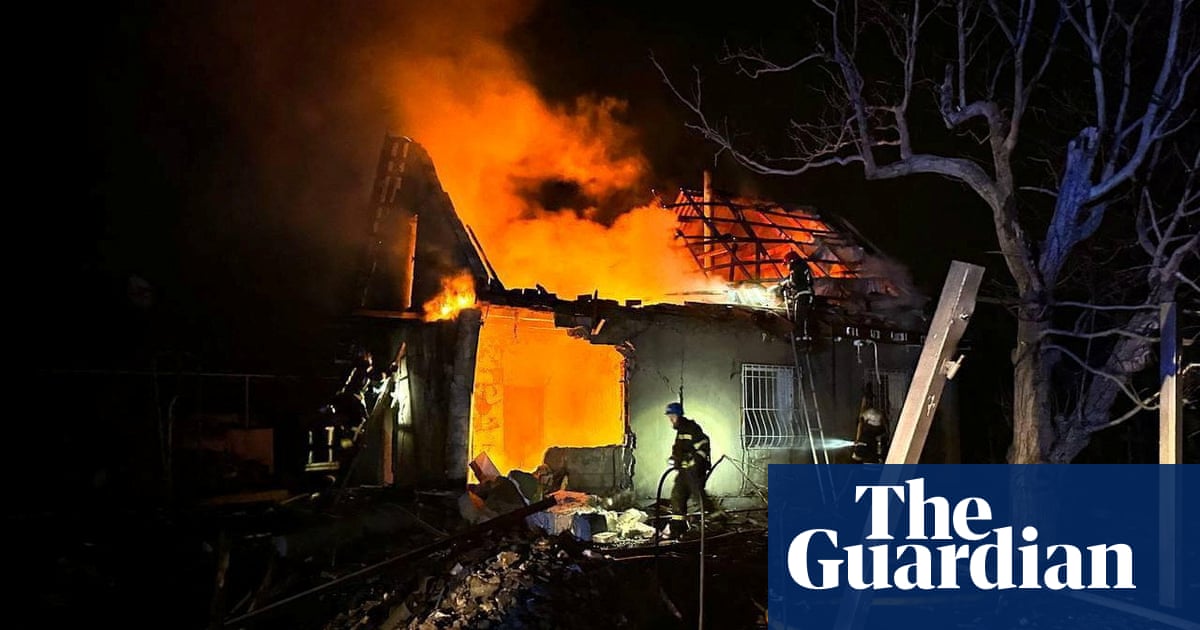
Most of Ukraine’s gas storage capacity is in the western part of the country and it is able to store around 30 billion cubic meters of gas
KYIV: An underground gas storage site in Ukraine was attacked on Sunday in the latest wave of Russian missile strikes on power facilities, while officials restored power in cities, ordered imports and imposed rolling blackouts to deal with shortfalls.
Ukraine’s state-run Naftogaz energy firm reported the attack on the gas storage site (UGS), but added that gas supplies to consumers had not been affected.
Naftogaz CEO Oleksiy Chernyshov said equipment damaged in the strike was being repaired.
“The situation will not critically impact the UGS operations since the gas is stored deep underground,” Chernyshov wrote on Facebook.
President Volodymyr Zelensky said efforts to restore power supplies were under way in various regions, with the greatest difficulties in Kharkiv, Ukraine’s second-largest city.
The country’s energy ministry and distributors said Ukraine ramped up imports of electricity and halted exports after the recent series of Russian attacks, in which top energy producer DTEK lost 50 percent of its capacity.
Volodymyr Kudrytskyi, head of Ukrenergo, which operates Ukraine’s transmission lines, said the latest wave of strikes had caused damage of at least 90 million euros ($97 million).
Russia attacked Ukrainian generating and transmission facilities on Friday, causing significant blackouts in many regions, and energy facilities in three Ukrainian regions were also attacked early on Sunday.
POWER CUTS, ROLLING BLACKOUTS
Zelensky, in his nightly video address on Sunday, said more than 200,000 residents of Kharkiv, a frequent target of Russian attacks, were without reliable power. The network had been restored elsewhere, he said.
Zelensky said “strict schedules” for power use were in force in Kharkiv. DTEK, the biggest private power company, said rolling blackouts had been imposed in the port of Odesa.
Odesa regional governor Oleh Kiper, in a posting just after midnight on the Telegram messaging app, said parts of the city were without power after damage to infrastructure caused by a new night-time drone attack.
Emergency services were on the scene, but he gave no further details.
The energy ministry said in a statement: “For the current day, electricity imports are forecast at 14,900 megawatt hours (MWh). No exports are expected.”
Ukraine imported 3,300 MWh a day before the attack on March 22, with exports of 2,148 MWh.
“Losses (from Friday’s attack) have already been assessed and the DTEK group has lost 50 percent of its generating capacity, we can say this information officially,” Serhiy Kovalenko, the head of distribution firm Yasno, said on national television.
Kovalenko said Russia had attacked two parts of the energy system — generation and distribution, hitting both thermal and hydropower plants.
“The enemy hit hard at grid nodes and transformers,” he said.
The ministry said that Russia had attempted on Sunday to hit a critical energy infrastructure facility in the Lviv region in western Ukraine.
“Equipment caught fire and the facility was de-energised. There were no casualties,” the ministry said.
The head of the Lviv region’s military administration, Maksym Kozytskyi, later said firefighters had taken most of the day to bring the blaze under control.
The ministry said that power lines in the Kyiv region were damaged and 1,400 households in two settlements had lost power.
Naftogaz’s Chernyshov said his company was currently working on localising and eliminating the impact of the Russian attacks.
Most of Ukraine’s gas storage capacity is in the western part of the country and it is able to store around 30 billion cubic meters of gas.












